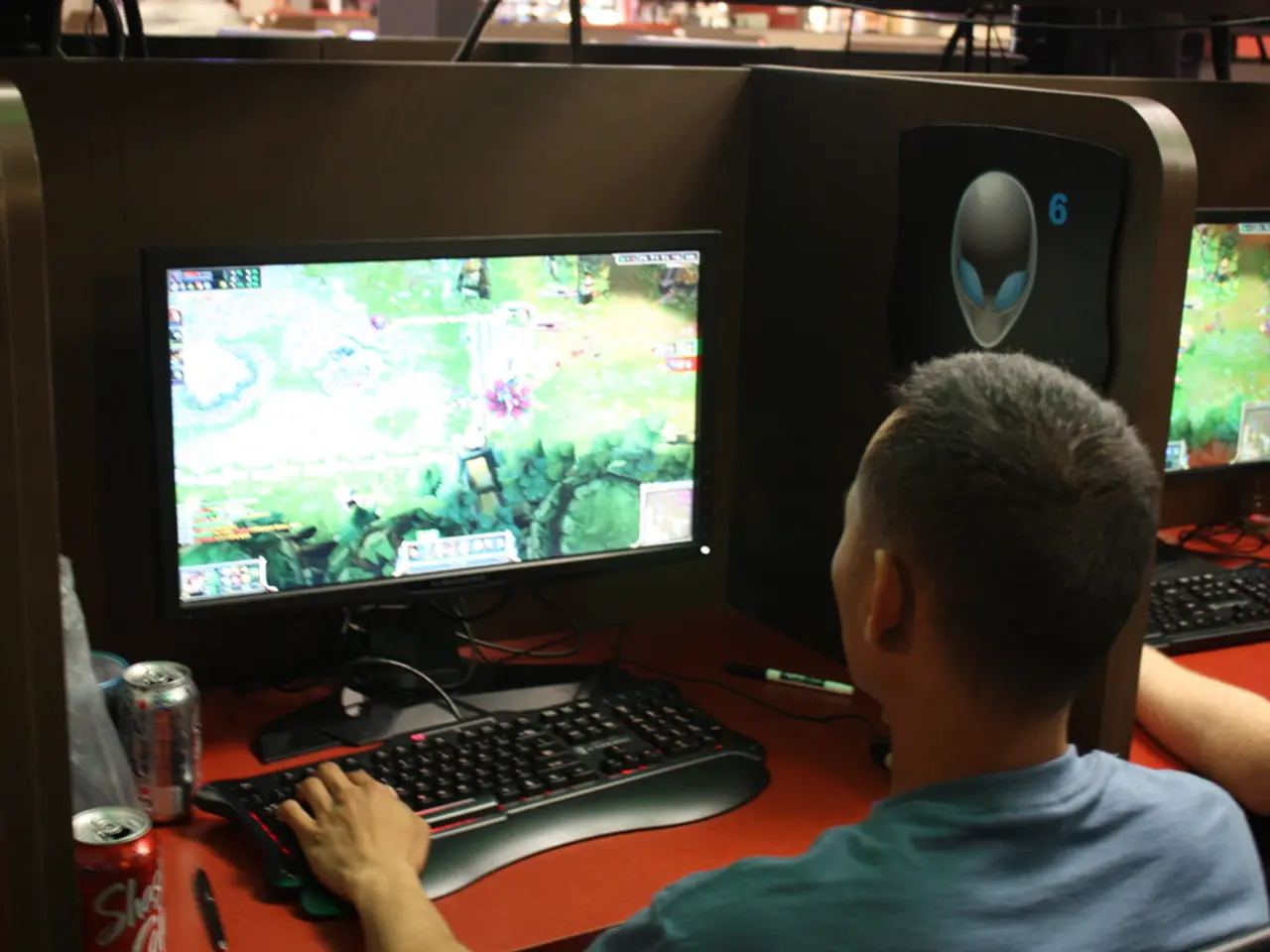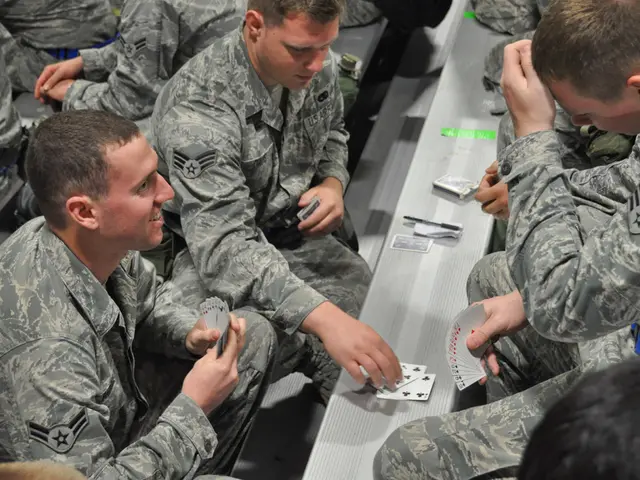Gaming and Lottery's Joint Histories: An Examination of Their Progression
In the modern era, digital technologies have revolutionized the landscape of gaming and lottery industries, driving new business models, user experiences, and market expansion. The convergence of digitalization, social media, and mobile technology has been instrumental in this transformation.
Digitalization has transformed both industries by enabling online platforms, virtual economies, and AI-driven personalized experiences. In gaming, artificial intelligence (AI) plays a central role, optimizing game development, localization, live operations, and creating hyper-personalized, dynamic gameplay that enhances player engagement and retention. AI-driven tools also improve production efficiency and market expansion strategies, allowing studios to meet rising player expectations with richer, more frequent content releases.
The lottery and gambling sector has embraced AI and machine learning to personalize betting options, improve fraud detection, and bolster security, creating safer, more interactive experiences. Blockchain and cryptocurrencies have introduced transparent, fast, and secure payment systems, addressing trust issues while enabling new betting models like provably fair games and faster payouts. Virtual Reality (VR) and Augmented Reality (AR) are emerging to provide immersive gambling environments that blur physical and digital boundaries.
Social media has influenced these industries by facilitating community engagement, real-time sharing, live streaming, and social betting features. It amplifies reach and user interaction, promoting games and betting events virally and enabling social-driven competitions and multiplayer interactions. Mobile technology has been a catalyst for accessibility, enabling gaming and lottery participation anytime and anywhere. The widespread adoption of mobile betting and gaming apps has expanded the user base significantly, especially as seamless, on-the-go experiences have become the norm.
An additional technological frontier shaping gaming’s future is Web3 and blockchain gaming, which decentralizes game economies, offers true player ownership of digital assets via NFTs, creates interoperable asset systems, and ensures greater transparency and security. This paradigm shift is creating player-driven ecosystems with real-world economic incentives, signaling a fundamental transformation in how games are played and monetized.
However, as the industries evolve, stricter regulations and responsible gaming initiatives have emerged in response to concerns over gambling addiction and the social impact of gambling. Balancing innovation with responsible gaming practices is essential for the sustainable growth of both industries.
The evolution of the gaming and lottery industries is ongoing, with their shared journey continuing to unfold in fascinating ways. From the ancient times to the digital era, both industries have grown together and influenced each other significantly. The Virginia Lottery, established in 1987, initially offered simple raffles but now includes a variety of games like instant-win scratch tickets and multi-state jackpot games such as Powerball and Mega Millions. Similarly, the gaming landscape has transformed from primarily physical experiences to online gaming with multiplayer experiences and virtual worlds, such as "World of Warcraft" and "Fortnite".
In conclusion, the digital revolution has profoundly influenced the gaming and lottery industries, offering more interactive, secure, immersive, and player-centric ecosystems. Technologies like AI, blockchain, VR/AR, social media, and mobile technology have driven this transformation, creating new opportunities and challenges for both industries as they continue to evolve.
[1] AI in Gaming Market - Global Industry Analysis, Size, Share, Growth, Trends, and Forecast 2019 - 2029, Grand View Research, Inc. [2] The Future of Gambling: How Technology is Changing the Industry, Forbes, 2020 [3] Web3 Gaming: The Future of the Video Game Industry, Medium, 2021 [4] Virtual and Augmented Reality in Gambling, Gambling Insider, 2019
- The ongoing digital revolution in gaming, as discussed in the article "AI in Gaming Market - Global Industry Analysis, Size, Share, Growth, Trends, and Forecast 2019 - 2029" by Grand View Research, Inc., has made AI a central player in optimizing game development, localization, live operations, and creating hyper-personalized gameplay, thereby enhancing user engagement and retention.
- The gambling sector, as highlighted in "The Future of Gambling: How Technology is Changing the Industry" by Forbes (2020), has embraced technology trends such as AI and machine learning to personalize betting options, improve fraud detection, and bolster security, leading to safer, more interactive experiences for users.
- The integration of technology such as blockchain, cryptocurrencies, VR, AR, social media, and mobile technology into the casino-and-gambling landscape, as reported in "Web3 Gaming: The Future of the Video Game Industry" on Medium (2021) and "Virtual and Augmented Reality in Gambling" by Gambling Insider (2019), is shaping new gambling trends by fostering immersive, transparent, fast, and secure gambling experiences that blur the line between physical and digital worlds.







